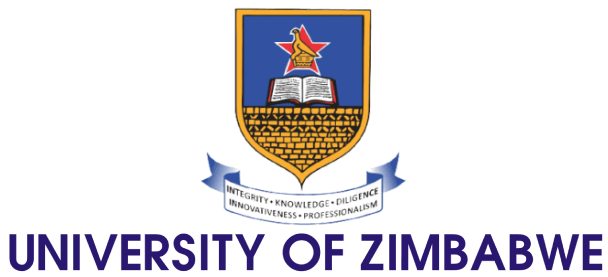General Overview
The foundations of the Veterinary profession are laid down in the Department of Veterinary Biosciences The mission of the department is to prepare students for the veterinary profession by equipping them with basic knowledge of the biosciences, communication skills and manual dexterity fundamental to veterinary practice.
Teaching
The Department is .devoted to the teaching of Anatomy, Biochemistry Physiology and Animal Welfare to students in their first one and half years (1½) of training. In addition, students receive training in Animal Nutrition from other departments. All disciplines are taught in a way that highlights their application in veterinary practice, animal production and public health. Given the wide range of animals encountered in veterinary practice, emphasis is placed on comparative aspects of veterinary anatomy, biochemistry and physiology. Information is given in the form of lectures, tutorials, practical work, seminars and field tours.
Students are introduced to information and digital skills during their preclinical years. The department of Veterinary Biosciences has computer facilities which are available for use by all veterinary science students. In this way the trainees learn to process and present their work professionally right from the beginning.
Teaching activities are supported by infrastructure that includes modern laboratories in Gross Anatomy, Histology, Biochemistry and Physiology. The department operates a library which caters for the special needs of the veterinary science student for audio-visual material and reading material. An Anatomy Museum contributes to teaching in all disciplines as well as serving as a quick reference point for clinical students and clinicians alike. Animal Houses within the department facilitate student training by providing comfortable accommodation for animal use in student practical work.
Apart from teaching mainstream Veterinary Science students, the Department of Veterinary Biosciences offers other degree programmes at both undergraduate and postgraduate levels.
Service
The Department of Veterinary Biosciencesprovides services to the community in the interests of animal welfare and public health. To this end the department conducts short courses in continuing education for veterinary nurses, laboratory animal scientists and other related professionals. Through exhibition at agricultural shows and trade fairs, the department contributes to public education on animal health, animal welfare and public health. In the national context, the department renders professional advice to bodies involved in policy formulation. Although the focus of the department is veterinary biosciences studies, the three sections have modern well-equipped laboratories that provide services to the veterinary profession in particular and the scientific community at large. A list of the services available includes: Molecular diagnostics, lyophilisation, osmometry, electrolyte analysis, urinalysis, haematology, electrocardiography, acid-base balance and preparation of histology slides and Gross Anatomy specimens.
Chairperson
Dr Elizabeth Gori
Qualifications: DPhil.,MSc Biotechnology., BSc Hons Biochemistry (UZ),
E-mail: This email address is being protected from spambots. You need JavaScript enabled to view it. or This email address is being protected from spambots. You need JavaScript enabled to view it.; This email address is being protected from spambots. You need JavaScript enabled to view it.
Read More...
Department Contact Details
The Chairperson
Department of Veterinary Biosciences
University of Zimbabwe
P.O. Box MP 167
Mount Pleasant
Harare
ZIMBABWE
Tel.: 303211-30 Ext. 19200
E-mail: This email address is being protected from spambots. You need JavaScript enabled to view it.

